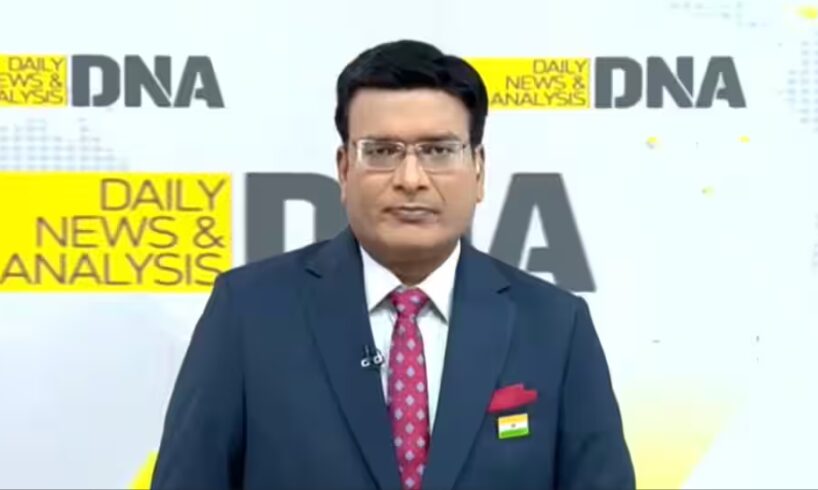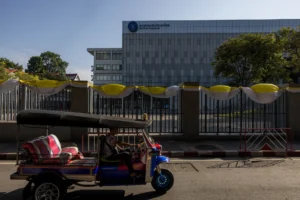
As Bihar prepares for its upcoming Assembly elections, an intense battle is unfolding behind the scenes over seat-sharing arrangements within both the ruling National Democratic Alliance (NDA) and the opposition Mahagathbandhan. Despite the announcement of election dates, neither alliance has finalised its seat-sharing formula, with smaller partners exerting pressure for a larger share of seats.
In today’s episode of DNA, Rahul Sinha, Managing Editor of Zee News, conducted a detailed analysis of the evolving political dynamics in Bihar, highlighting the significant impact these seat-sharing battles could have on the election outcome.
Watch Video Here:
Add Zee News as a Preferred Source
#DNAWithRahulSinha | #DNA #BiharPolitics #BiharElections205 #BJP #NDA #SeatSharing @RahulSinhaTV pic.twitter.com/BPOmq6RTRL
— Zee News (@ZeeNews) October 8, 2025
The NDA, comprising BJP, JD(U), Chirag Paswan’s Lok Janshakti Party (Ram Vilas), Jitan Ram Manjhi’s Hindustani Awam Morcha (HAM), and Upendra Kushwaha’s Rashtriya Lok Samata Party, is facing significant pressure from its junior partners.
While BJP and JD(U) have nearly settled on seat allocation, with JD(U) likely to contest 105 seats and BJP 100, disputes persist over allocations for LJP(RV) and HAM.
Chirag Paswan has demanded at least 35 seats, along with one Rajya Sabha and one Legislative Council seat, rejecting the current offer of 25 seats. He chose to skip the recent NDA meeting in Patna and posted a pointed message on social media quoting his late father Ram Vilas Paswan, “Don’t commit injustice, don’t tolerate it. If you want to live, learn to die. Learn to fight at every step.”
Chirag’s support base accounts for approximately 11.5% of Bihar’s population. Although this does not guarantee victories in every seat, the vote share is sufficient to influence election outcomes significantly.
Meanwhile, Jitan Ram Manjhi remains firm in his demand for 15 seats. Citing Hindi poet Ramdhari Singh Dinkar, he warned that if his demands are not met, he may contest up to 100 seats independently, potentially disrupting the NDA’s prospects. Manjhi’s community represents roughly 6% of the electorate. In the 2020 election, his party secured 4 out of 7 seats contested despite a modest 1.17% vote share.
Mahagathbandhan Faces Its Own Seat-Sharing Challenge
The Mahagathbandhan, consisting of the RJD, Congress, Left parties, and Mukesh Sahani’s VIP, is also grappling with seat-sharing tensions.
Mukesh Sahani, leveraging the support of Mallah, Nishad, and Kevat communities, demands 30 seats and the Deputy Chief Minister’s post. He claims a voter base of around 9-10%, with significant support spread across constituencies. While his candidates may not guarantee wins, his vote bank holds sway over close contests.
Tejashwi Yadav has proposed a seat-sharing formula aiming to accommodate all partners: VIP: 18 seats, Congress: 55 seats, Left parties: 30 seats, RJD: 130 seats
However, the Congress is pressing for 80 seats, reflecting its determination to regain relevance in Bihar’s political landscape after years of marginalisation. Rahul Gandhi, who recently undertook a padayatra in Bihar to boost the party’s presence, is pushing for a better deal. Sources indicate that Congress may ultimately settle for 55 seats. In 2020, the party contested 70 seats but won only 19.
The Congress Central Election Committee convened in Delhi today to discuss candidate selection, highlighting the urgency of resolving internal disputes.
Delayed Decisions Heighten Uncertainty
Despite multiple high-level meetings, both alliances have yet to officially announce their seat-sharing agreements. This delay is creating anxiety among party cadres and aspirants as pressure mounts from within the alliances.
As the Election Commission’s schedule advances, all eyes are on how the seat-sharing puzzles in NDA and Mahagathbandhan will be resolved, and whether competing ambitions can be balanced with alliance cohesion.





